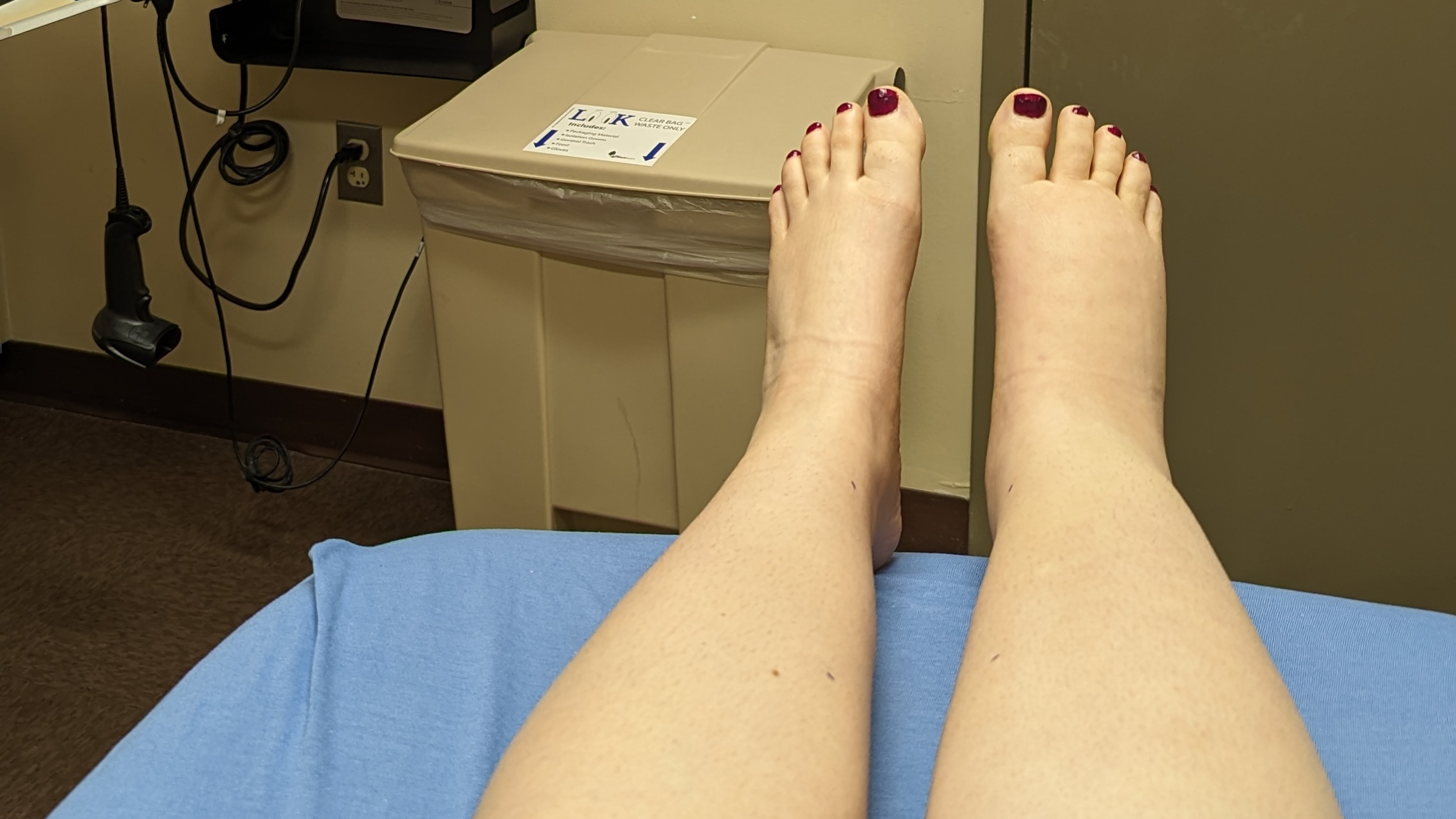What happened to your leg? • What are you wearing on your arm? • What’s all that bandaging for? • “Lymphedema” — what’s that mean?
Do any of these questions sound familiar? Chances are good that if you have lymphedema, you’ve been asked questions like this at one point or another — maybe even on a near-daily basis.
The thing is, humans are naturally curious: we see something or someone that’s a little different from us and we want to know what, why, and how. We ask questions. Being on the receiving end of those questions can be difficult, though, especially when it’s about your health.
I used to dread questions about my lymphedema: I was so self-conscious about my swelling that any questions or comments automatically felt invasive and uncomfortable — I didn’t want to draw any attention to my leg, let alone talk about it.
Over time I realized that if people ask questions it’s usually because they genuinely want to learn, so I made the choice to approach questions about my leg not as personal intrusions, but as opportunities to spread awareness about lymphedema.
Whether I’m making small talk with an Uber driver about my blog or receiving a double-take from a neighbor in the elevator who’s just noticed my compression garment, I’m constantly flipping through my mental Rolodex of responses to determine how to best explain lymphedema to strangers.
I like to call this “lymphsplaining” because I’m not only explaining lymphedema and the lymphatic system, but I’m doing so within the context of my own personal experience as someone who lives it. This distinction is significant: there is so little awareness in mainstream society about lymphedema and the lymphatic system that the responsibility to educate often falls on us, the patients and advocates.

We lymphies are ambassadors to lymphatic health and may find ourselves lymphsplaining a lot, be it to strangers, friends and family — sometimes even to medical practitioners! It’s not a bad thing, but figuring out how to respond to questions can be a little overwhelming at times.
My go-to responses
How you respond to questions about your lymphedema is dependent on a number of factors, the most important being you. What are you comfortable with? How much are you willing to share? What’s most appropriate for the situation?
For me, I’ve found that I default to one of three types of responses: a brief explanation; a full-on mini lesson on the lymphatic system; or a polite but firm boundary. To better explain what each of those mean, I put together this little illustrated guide for you. (Excuse my sloppy doodles!)
1. The Briefing
Sometimes, less is more! A brief explanation can be all you need to get the general idea across while still teaching the other person something new. If they want to know more they might follow up with another question, but usually a short ‘n sweet answer is satisfying enough.

2. The Physiology Lesson
Most people have no idea what the lymphatic system does, or that it even exists. If you know your stuff, by all means — drop some knowledge! Don’t be afraid to pull out some visuals or use a creative analogy to help you lymphsplain, either. A thorough and well-informed response is one small step for helping their personal understanding, but one giant leap for lymphedema awareness.

3. The Polite Boundary Setting
Last but not least: if you’re not comfortable answering questions about your lymphedema, say so! There’s absolutely nothing wrong with setting a boundary. Let whomever asked know that your health is a personal matter, although you’d be happy to send along some resources where they can learn more about lymphedema if they so choose (like The Lymphie Life, for example! 😉).





Leave a Reply